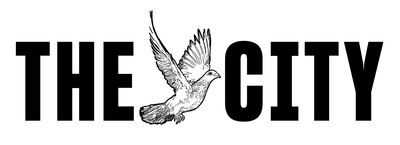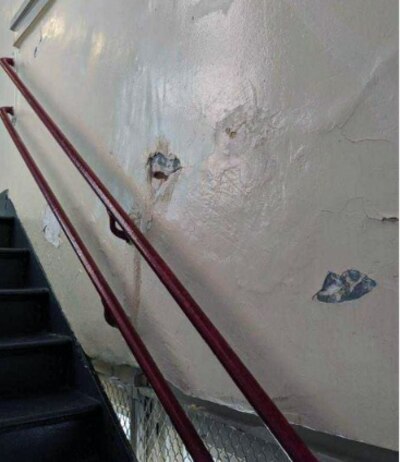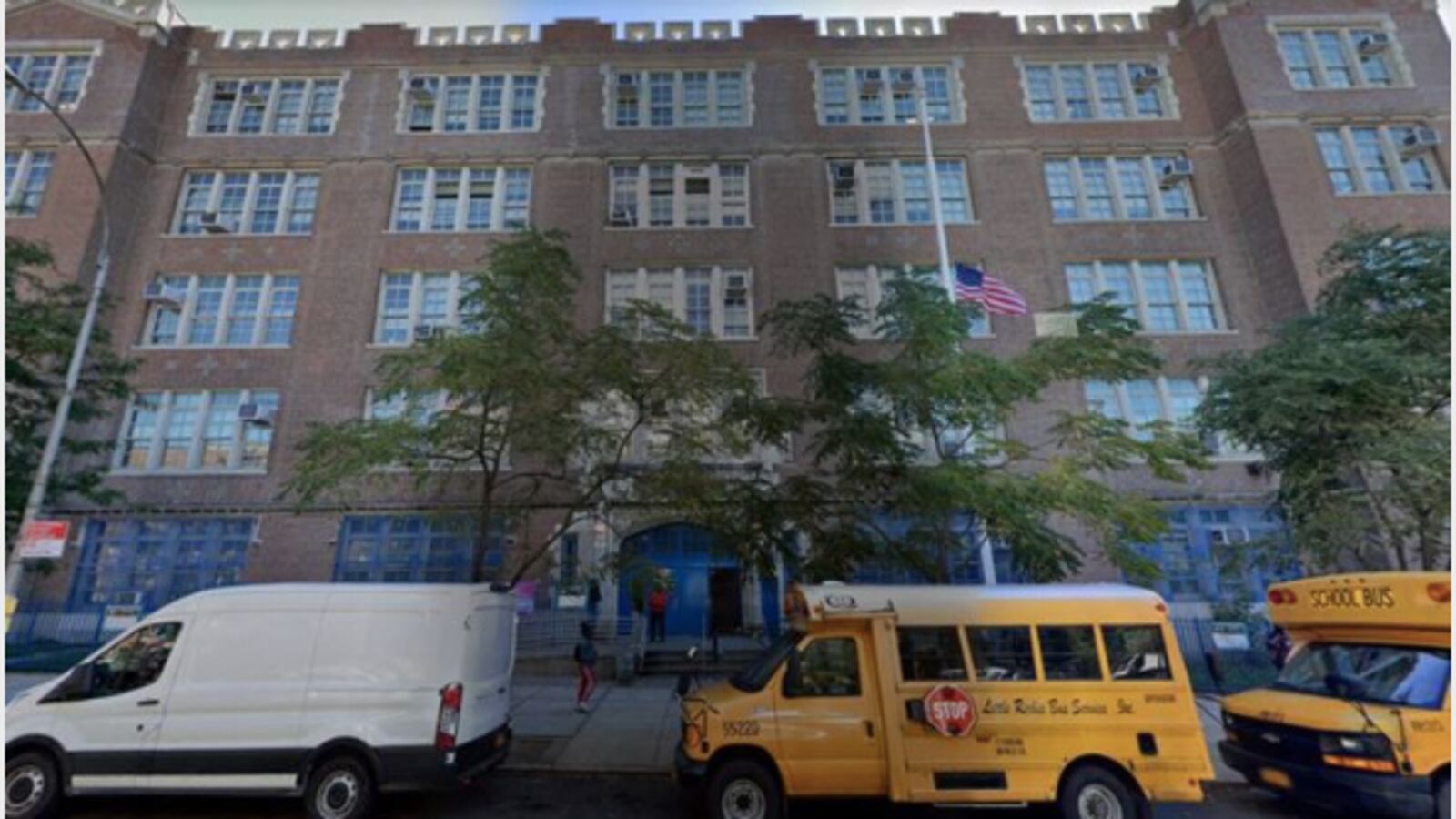
This story was originally published on March 17 by THE CITY.
City public schools are closed to prevent the spread of coronavirus — but families at a Bronx campus where a teacher tested positive for infection say they still haven’t gotten guidance about what to do.
On Monday evening, staff from three public schools that share the Grace Dodge building in Fordham received a letter from the Department of Education Chancellor Richard Carranza confirming a case of COVID-19 on the school’s campus, an instructor at Crotona International High School.
That teacher received his diagnosis from Montefiore Hospital last Thursday, with no word still to families interviewed by THE CITY whose children attend the schools.
That’s left educators and family members of students anxious — second-guessing symptoms and awaiting guidance from school officials. Some are also steamed that Mayor Bill de Blasio waited until Monday to close public schools, days after most parochial and private institutions had suspended classes.
“I’m so worried,” said Maribel Medina, whose 15-year-old son goes to school at the Grace Dodge campus and has developed a fever since he stopped going to school. Her husband has chronic asthma.
“Not only for my boy but for all the kids and their families, understand? All these immigrant people who are afraid [to] say anything because of how the government treats them. I don’t understand how there were so many schools for white people closing. What about us?”’
In an emailed statement to THE CITY on Sunday, Danielle Filson, Department of Education spokesperson, declined to directly address the situation at the Bronx campus.
“Health and safety always comes first,” she said.
“The city is no longer confirming information about individual cases,” Filson added. “The Health Department will advise on any necessary next steps for any New Yorker, including DOE students and staff. If an individual feels sick and does not feel better within three to four days, they should contact a doctor.”
The city Department of Health and Mental Hygiene could not immediately be reached for comment. On Monday night, the Health Department advised that all New Yorkers should act as if they have been exposed to coronavirus.
🔗‘Damn. The School.’
At first, the infected teacher treated his flu-like symptoms with his normal remedies: ginger, orange juice, he told THE CITY in an interview. The teacher asked that his name not be published.
He took a day off of work.
But when he heard word last Wednesday that someone he knew may have tested positive for coronavirus, he went for an eight-mile run, called his wife, and headed to the emergency room “to get checked out.”

The next afternoon, he received a call from his hospital lab. He was positive.
“The first thing I thought was ‘Damn. The school.’ ”
He immediately wrote the principal and other administrators, sharing his test result.
“And of course I told my colleagues. It’s my duty,” he recalled. “I said, if you can go get yourself checked, get tested.”
By Thursday afternoon, the news had leaked to students and quickly spread.
“DON’T GO TO SCHOOL !!!” screamed Snapchats flying from student to student.
Osveily, another 15-year-old at Grace Dodge, said she panicked when she first heard that coronavirus had been detected at the school.
“I was afraid, because not only do I go to the same school ring, same building, but I also have, you know, siblings at home that I really don’t want them to get sick or infected…you’re just notified like ‘Hey, guess what? You know that one virus that is very contagious and could possibly kill you or kill a family member?’ ”
That night, Univision ran a segment on the rumors spreading within the school. News 12 broadcast the test results and an audio interview with the teacher. Families who had not yet heard the warnings from their kids were shocked.
“All the parents were talking to each other,” said Anyeska, a 16-year-old student who said her mother is immunocompromised.
🔗‘A Train Wreck’
Parents and teachers waited for an answer late into the night on Thursday, holding out for official notice that the school was closing. Until Sunday evening’s system-wide shutdown announcement, the Department of Education policy was to close any school building with a confirmed infection for a cleaning.
Some teachers urged kids, against DOE policy, to stay home as the night and morning dragged on with no signs from the administration. More than a dozen instructors put themselves under quarantine voluntarily, obtaining doctors’ notes, according to a teacher.
On Friday morning, an email from the principal of BASE High School on the campus finally reached that school’s parents, but it only added to the confusion.
“As of right now there has been no case of COVID-19 in the Dodge Campus that has been confirmed by the Department of Health,” it said. “That means the school is open today and next week, unless something changes.”
But few students came to campus — and a majority of teachers called out sick.
One teacher’s aide, who had worked with the infected educator for a week before his diagnosis and lives with her frail octogenarian grandmother, frantically looked to the health care system for help.
After calling 911 and explaining the situation, she was rushed to the hospital in the same ambulance as her grandmother. They were transported together, and isolated in the ER, but never tested.
“My mom says now that she has a headache, but I’m not sure if they’re for coronavirus symptoms or if it’s allergies,” she told THE CITY.
Anyeska’s parents were angry, too. “The administration never answered them or called them — they just asked why I didn’t come to school on Friday,” she said.
“Today was a train wreck,” the principal of one of the schools wrote in an email to staff at 4 p.m.
Over the course of Monday and Tuesday, each of the three school’s staff was notified of the case being confirmed. Educators are still aghast that families have been kept in the dark, and that they still will be required to report to the premises.
The union United Federation of Teachers did not respond to requests for comment.
“The community is outraged at the negligence and arrogance displayed towards us,” said one teacher, who requested anonymity over fears of reprisal.
They added: “Most staff are working from home this week despite the mandate to come in” for training on digital education slated to begin next week for children in their homes.
🔗‘Be Persistent’
Aracelis Lucero, executive director of the education-support nonprofit MASA in the South Bronx, told THE CITY that it’s essential for parents to be apprised, in their own language, of the ever-changing landscape of the pandemic.
Lucero said that many documented and undocumented people in the Latino community that she serves “have started talking about the economy, of their husband losing their job, what that may mean for their family.”
Many do not have insurance, and are receiving misinformation about the costs of going to the hospital, and have few ways to quarantine their often multigenerational households in the event of sickness.
“That’s not possible with some of these low-income families with multiple family units in one place,” said Lucero.
For families who are worried at home, Lucero encourages them to be proactive in seeking help if they believe their child is sick.
“It’s the time to be persistent. If you know something is wrong, trust your gut, get your child to the hospital. Especially if they cannot breathe,” she said.

